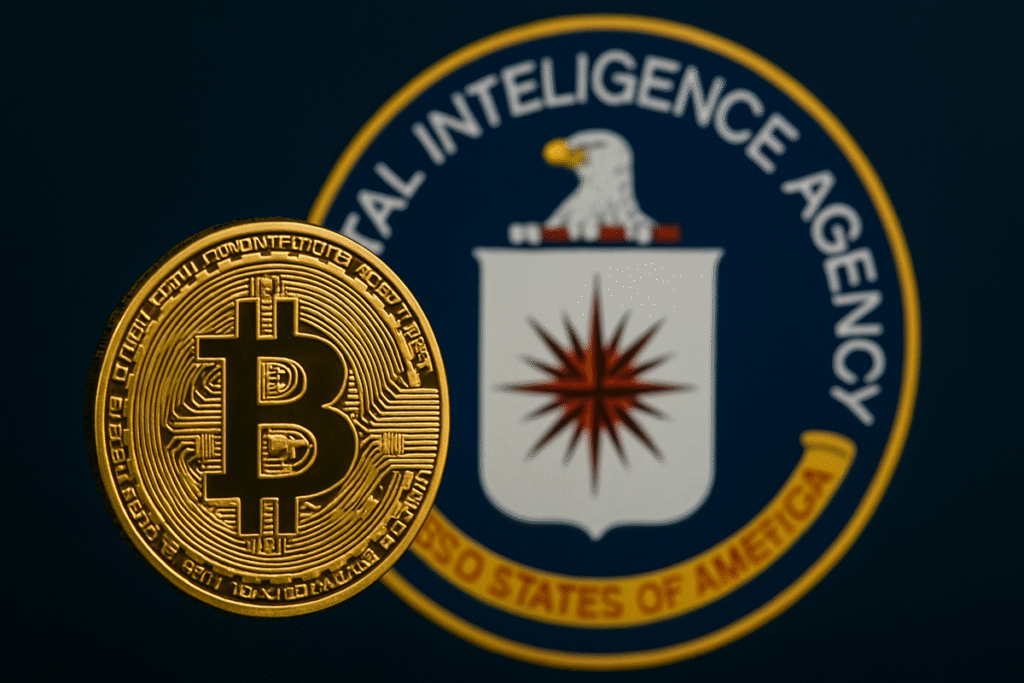In the rapidly evolving landscape of international finance and technology, Bitcoin has emerged as a pivotal player. Once perceived merely as an enigmatic digital currency, it has now caught the attention of strategic government agencies like the Central Intelligence Agency (CIA). This emerging interest is not just about the curiosity of digital currencies but an acknowledgment of their integral role in global economics and their potential as tools for intelligence operations. As the Deputy Director of the US CIA, Michael Ellis, recently discussed, Bitcoin’s blend of transparency and pseudo-anonymity makes it a significant point of focus for national security and geopolitical strategy.
Bitcoin’s Strategic Importance in National Security
The CIA’s Perspective on Bitcoin and Cryptocurrency
Michael Ellis, in a discussion with podcast host Anthony Pompliano, shed light on how Bitcoin’s perceived anonymity is more accurately described as pseudonymity. He pointed out that while Bitcoin transactions are not entirely anonymous, this characteristic provides an unexpected advantage for law enforcement agencies. This is because the digital ledger, or blockchain, allows authorities to trace illicit crypto transactions effectively, potentially aiding efforts to combat criminal activities.
Ellis emphasized that Bitcoin should not be singled out as a unique threat, as various entities, including drug cartels and terrorist organizations, have used a wide range of tools, not just cryptocurrency but also common goods and currencies, to conduct their operations. Therefore, a broad-spectrum approach is essential for dealing with such threats.
Bitcoin’s Permanent Role in the Financial Ecosystem
Ellis’s conversation highlighted a critical policy insight: “Bitcoin is here to stay. Cryptocurrency is here to stay.” This statement reflects an understanding that cryptocurrencies have become embedded in the global financial system. This development is not merely financial but carries geopolitical implications, where the United States must ensure its leadership against global competitors like China.
The dual-use nature of cryptocurrency—a tool and a target—was also discussed. Ellis noted that while Bitcoin can be used strategically to counter adversaries and enhance intelligence gathering, it also represents a new competitive arena in technology and security.
Cultural Shifts within the Intelligence Community
Within the CIA, a culture shift is underway, driven by advancements in technology and new mindsets. Ellis acknowledged the need to overcome outdated perceptions that view cryptocurrencies with suspicion and instead recognize their legitimate applications. As Director Burns and Ellis lead this shift, they aim to align the agency’s strategies with contemporary technological realities.
FAQs
How does the CIA utilize Bitcoin in its operations?
The CIA leverages Bitcoin’s blockchain technology to trace and monitor illicit transactions. This capability is instrumental in gathering intelligence and disrupting criminal activities that rely on digital currencies.
What implications does Bitcoin’s acceptance have on global power dynamics?
As Bitcoin becomes more entrenched in financial systems, it influences global power dynamics by forcing nations to adapt and compete in the digital currency space. It pressures countries like the United States to develop policies that ensure technological and economic leadership.
Why is there a generational shift regarding cryptocurrency in the intelligence community?
The generational shift stems from the increasing recognition of cryptocurrency’s potential beyond illicit activities. Newer generations within the agency are more open to the benefits of digital currencies, understanding their relevance in modern finance and technology strategy.
This comprehensive guide to Bitcoin and its strategic significance delves into its applications, challenges, and the evolving perspectives within national security circles. By understanding these dynamics, readers can better appreciate the broader implications of cryptocurrency on global finance and security.

